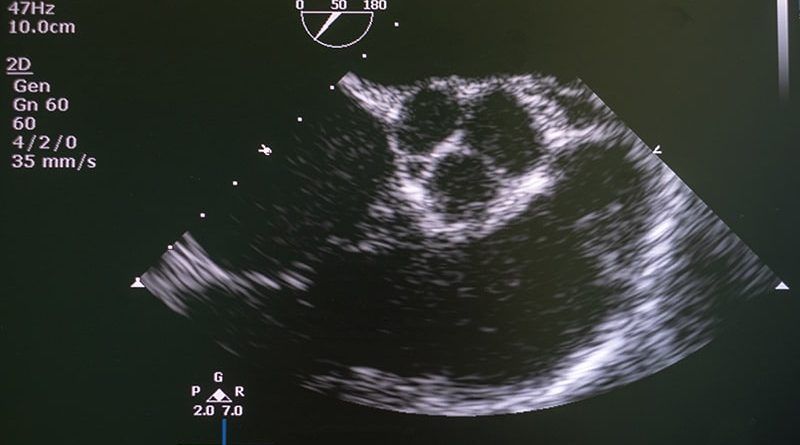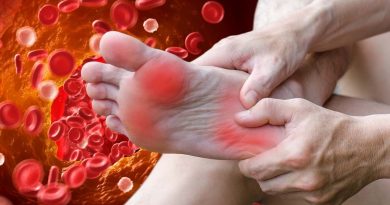Warfarin Worsens Aortic Stenosis Outcomes vs DOACs, Study Hints
Patients with aortic valve disease were often excluded from the major trials that ushered the direct oral anticoagulants (DOACs) into practice, largely supplanting warfarin and other vitamin K antagonists (VKA). But they are key to a recent body of evidence that VKA, compared with DOACs, can aggravate progression of valvular calcification and perhaps — in a new, very speculative analysis — curtail survival.
Mortality over 5 or more years for such patients taking warfarin went up by about a third, compared with those not on oral anticoagulation (OAC), in the observational study, and jumped 47% compared with patients taking DOACs. Moreover, aortic valve areas and gradients appeared to deteriorate faster for those on warfarin than those on DOACs.
The new findings stem from a decade of data from almost 2400 patients with mild to moderate aortic stenosis followed at a major center, about 30% of whom were on OAC, usually for atrial fibrillation (AF).
They are only suggestive but mesh with clinical and preclinical evidence that long-term VKA therapy might accelerate the structural and functional progression of aortic valve calcification, aortic stenosis, and vascular calcification, note researchers in their letter published in the July 12 issue of the Journal of the American College of Cardiology.
Although it’s unable to show cause and effect, “this is the largest study to reveal the strong association of warfarin relative to DOAC therapy with faster disease progression and poorer clinical outcomes in mild or moderate aortic stenosis,” observe the authors, led by Essa H. Hariri, MD, Cleveland Clinic.
“With growing evidence of favorable clinical outcomes of DOACs, prescribers of anticoagulation should consider these observations in high-risk patients with concomitant aortic stenosis,” they write.
“At face value, the results indicate that warfarin is harmful relative to DOACs,” observed John W. Eikelboom, MD, PhD, Population Health Research Institute, McMaster University, Hamilton, Ontario, Canada, who isn’t connected with the study. The findings are interesting, “however, they are observational, and we must be extremely cautious about their interpretation,” he told theheart.org | Medscape Cardiology.
Some of the results point to residual confounding, despite efforts at multivariable adjustment. For example, Eikelboom said, the mortality effect of warfarin, compared with DOACs, was “implausibly large,” as was the almost 40% reduction in aortic valve replacement (AVR) for DOACs, compared with no anticoagulation, “despite there being evidence of progression of valve disease in DOAC group.”
There are indeed observational data from other sources that support the current study’s results, he said, “but I think the most important message is that we need to explore this using randomized comparisons.”
The study involved 2383 patients 60 years or older with mild to moderate aortic stenosis seen from 2008 to 2018 who underwent echocardiography at least twice 2 years apart. About 30% went on OAC for AF or venous thromboembolism, about 20% died, and 30% underwent AVR over a median of 67 months.
The adjusted hazard ratio (HR) for death from any cause on warfarin was 1.34 (95% CI, 1.07 – 1.68; P = .009) compared with no OAC, and 1.47 (95% CI, 1.18 – 2.02; P = .013) compared with DOACs.
Warfarin therapy was associated with a greater risk for AVR than DOACs, at an adjusted HR of 1.46 (95% CI, 1.08 – 1.98; P = .014), and DOAC use led to a lower AVR risk than no OAC, at an adjusted HR of 0.61 (95% CI, 0.46 – 0.81; P = .001).
In a propensity-matched comparison of patients on warfarin and on DOACs, the report notes, the warfarin group showed a numerically faster decline in aortic valve area (by 7.02 mm2/year vs 5.30 mm2/year) and steeper rise in mean transvalvular gradient (by 1.63 mm Hg/year vs 1.02 mm Hg/year).
As described by Hariri and colleagues and sources they cite, warfarin might accelerate aortic valve calcific degeneration by suppressing the vitamin K–dependent activation of proteins that inhibit valvular calcification.
Hariri and the other authors report that they have no relevant disclosures.
J Am Coll Cardiol. 2022;80:181-183. Letter
Follow Steve Stiles on Twitter: @SteveStiles2. For more from theheart.org, follow us on Twitter and Facebook.
Source: Read Full Article



